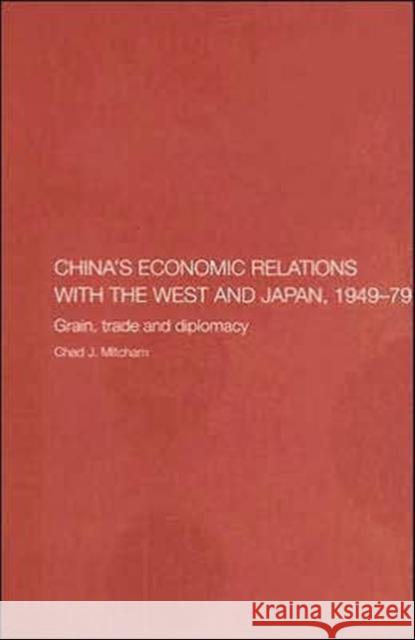China's Economic Relations with the West and Japan, 1949-1979: Grain, Trade and Diplomacy » książka
China's Economic Relations with the West and Japan, 1949-1979: Grain, Trade and Diplomacy
ISBN-13: 9780415314817 / Angielski / Twarda / 2005 / 304 str.
China's Economic Relations with the West and Japan, 1949-1979: Grain, Trade and Diplomacy
ISBN-13: 9780415314817 / Angielski / Twarda / 2005 / 304 str.
(netto: 673,60 VAT: 5%)
Najniższa cena z 30 dni: 654,86
ok. 22 dni roboczych.
Darmowa dostawa!
Farm and business lobby groups played a vital role in the erosion of the American-led trade embargo against China from 1949-79. In this comprehensive study, based on recently declassified primary source material, trade negotiations and agreements are examined and a detailed account of developing economic links between East and West is also provided.
Developing economic relations and tensions with US policy are discussed in the context of PRC and Western economic and agricultural problems, Beijing's development strategies, Sino-Soviet relations and the backdrop of War in Asia. The story starts with regional grain shortages as a result of Mao's self-sufficiency policies. Washington failed to prevent its allies from stopping politically influential private and semi-official trade promotion organizations from maintaining more stringent trade restrictions aimed at preventing China's economic development. Mitcham also charts the rise and fall of the Great Leap Forward and China's eventual recovery, capped byrapprochement, the re-opening of important diplomatic and trade relations and Beijing's readjustment policies. By the late seventies, the stage was set for the rise of the Chinese economic engine, and a shift in economic thinking that continues to have repercussions both within China and around the world today.
For historians, economists, political scientists, government officials, business representatives and others with an interest in Chinese economics and history, China's Economic Relations with the West and Japan will be essential reading.











